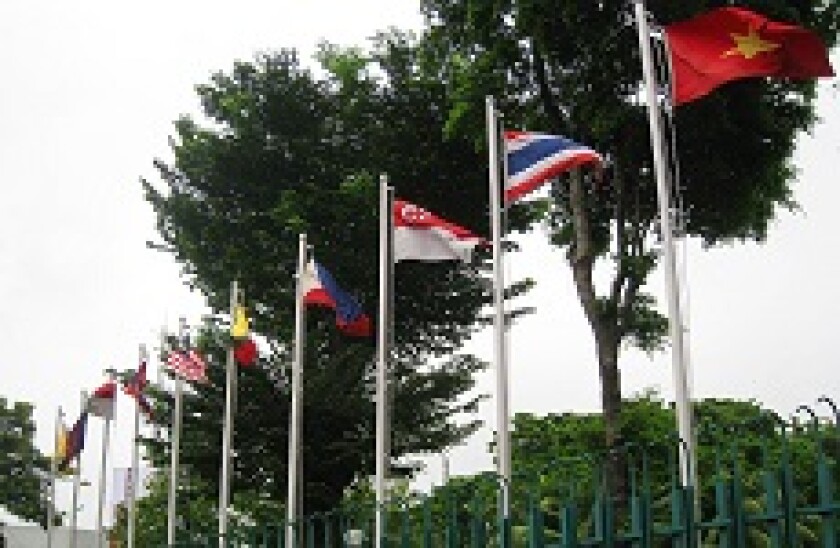CGIF, which provides credit guarantees for corporates that want to issue local currency bonds in southeast Asia, completed five transactions in 2014, having backed just two issues in 2013.
The deals, while still small in number, are usually landmarks. For example, CGIF guaranteed Masan Consumer’s VND2.1tr ($98.6m) bond, the first corporate bond in Vietnam with a 10 year tenor since 2007.
The facility has also enabled leading Asean companies to make debuts in foreign local currency markets that would otherwise be shut to them, such as Indonesia’s Protelindo Finance S$180m ($134.7m) 10 year issue and Laos’ Kolao Holdings S$60m three year bond.
CGIF's Nishimura told GlobalCapital Asia that more landmark transactions were in the works for 2015. For a start, the agency hopes to lead the way in the development of green bonds as part of its efforts to introduce new types of bond instruments to the region.
“Most likely our initial projects for green bonds will be for renewable energy or energy efficiency investments,” said Nishimura. “We are already working on transactions involving renewable energy investments in the Philippines [geothermal] and Laos [hydro] and exploring if they can be structured as green bonds.”
He said that the agency was focusing on green bonds as there were huge green investment needs in Asean countries in renewable energy and energy efficiency areas and almost no precedent for green bonds in Asia.
Japanese retail investors have been active investors in green bonds and Nishimura said they would also be interested in green investments in Asean countries if appropriate instruments were available. CGIF is targeting the second or third quarter for these issues.
Green bonds have been slow to take off in the region, with only two issued in Asia since 2013. But the green bond market is predicted to grow this year.
The agency is also looking to back project, or infrastructure, bonds for developments that need long dated local currency funding. Nishimura said the agency may end up focusing on project bonds which are also green, but that it was also considering backing other types of infrastructure projects in conventional power or toll roads.
In addition, CGIF wants to support bond issues in markets where it has not previously been active.
“We are hoping to see [issuers from] new markets like the Philippines and Thailand using [the guarantee] — we are currently working on that,” said Nishimura. CGIF also hopes to back bonds issued in the Philippines and Malaysian markets for the first time.
Since it was set up in 2010, CGIF has backed borrowers from Hong Kong, Laos, Indonesia and Vietnam. Deals backed by CGIF have been issued in the Thai, Indonesian, Singaporean and Vietnamese markets.
CGIF's long term aim is that the issuers it backs will continue to tap these markets without the use of the guarantee. The facility is also looking at more developed markets, such as offshore renminbi and Samurai, though there are no plans for these yet, said Nishimura.
Constraints to growth
While 2014's tally of five deals marked a strong pick-up in activity on previous years, CGIF was one deal shy of its goal of six issues for the year.
“We worked much more than originally thought on designing products to meet each market’s requirements, because in each market it was our first experience,” said Nishimura.
He added that he did not expect many more issues in 2015, estimating only five or six by the end of the year. Its targets are modest because the size of the agency places a limit on its ability to do more. In addition, the capacity of the CGIF is slightly less than $2bn.
“The biggest constraint we have is that we are a small organisation,” he said. “We only have six people on our deal team and can only do a few transactions per year, so we need to be selective”.
CGIF would need to build a track record before the shareholding countries and the ADB could consider increasing the guarantee's capacity and the size of the team, he added.
Although CGIF has a small team, the facility has won support from investment banks and financial arrangers, which have introduced most of the existing issuers to CGIF. Banks on previous deals have included HSBC, Standard Chartered, Société Générale, DBS and OCBC.
And things are looking up for CGIF since its initial guarantees, with Nishimura saying that the facility had gained more traction and interest from companies.
CGIF was founded in 2010 by members of Asean, China, Japan, South Korea and the ADB; but the facility did not start providing guarantees until 2013.

